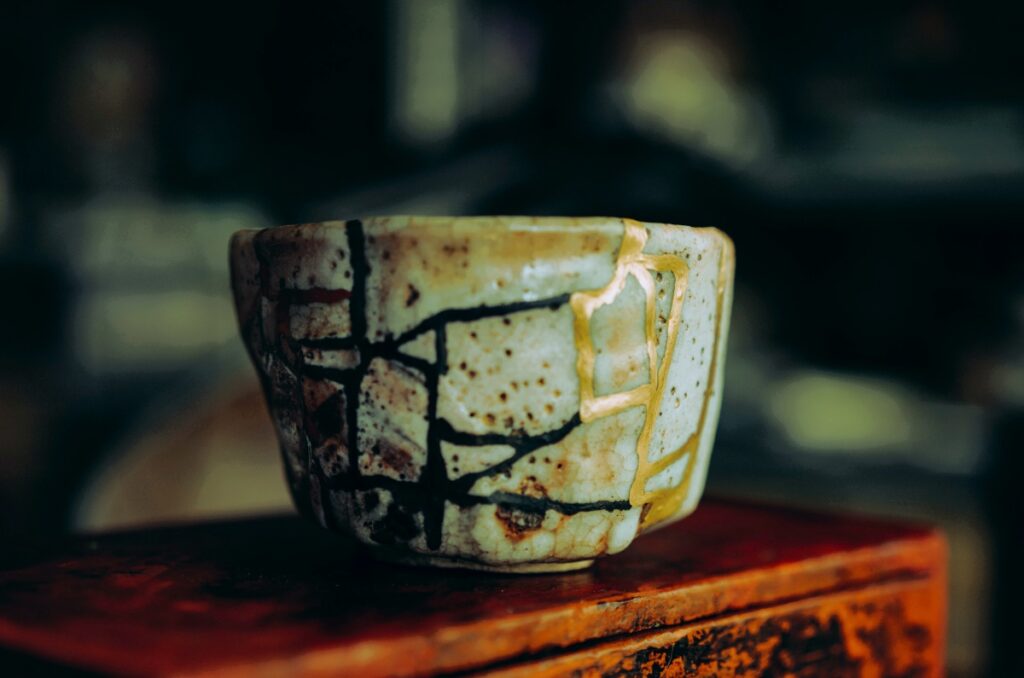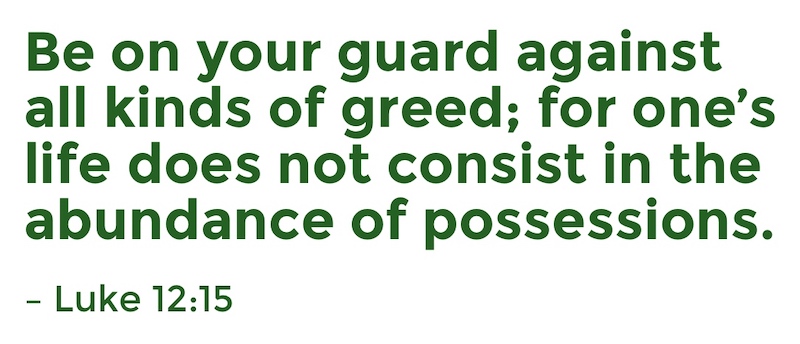Many spiritual traditions have a theme of acceptance of impermanence, that all things are passing. The Japanese culture has a concept of wabi sabi, which finds beauty in the imperfect and impermanent nature of things. In Christianity we acknowledge that all things on this earth, in the temporal and material realm, are also passing. One of Buddhism’s primary doctrines is annica, which states that nothing is permanent and all is subject to decay. In science we call this entropy.
Eternal Life
We talk about impermanence, yet we speak of eternal life. In many ways, we seek a kind of permanence. The fear of death reveals a desire for this. And the concepts of heaven and hell give theological definition to the innate desire for eternal permanence. As Augustine said, we are restless until we rest in God. We desire a deep union, a sort of completion or permanence in God. In fact, for many of us, it’s hard to imagine our consciousness, our very selves, not continuing after death. Is a desire for eternal life a desire of the ego? Religious preoccupation with the afterlife as the sole focus of our life on earth may indicate this. Rather than live fully in the present moment, we can fixate on how we ensure our eternal life (in heaven). When the only focus is on “getting to heaven”, we may find at the end of our earthly lives that we haven’t really lived.
 But the desire for eternal life may also be a sincere yearning for an eternal fullness of love and union in God. Maybe it’s not so much about permanence, but wholeness. We feel in our day to day that there is a sense of incompleteness, where the kingdom Jesus spoke about can be seen in glimpses but has not fully arrived into our being and consciousness. Consider also how helpful the idea of heaven is for those we’ve lost, that we may see them again. Is the ego at play or love? This is the question for discerning spirits. Is my desire for eternal life coming from and leading me to God and love? Or is it leading me to my ego, my own self-preservation, neglecting love.
But the desire for eternal life may also be a sincere yearning for an eternal fullness of love and union in God. Maybe it’s not so much about permanence, but wholeness. We feel in our day to day that there is a sense of incompleteness, where the kingdom Jesus spoke about can be seen in glimpses but has not fully arrived into our being and consciousness. Consider also how helpful the idea of heaven is for those we’ve lost, that we may see them again. Is the ego at play or love? This is the question for discerning spirits. Is my desire for eternal life coming from and leading me to God and love? Or is it leading me to my ego, my own self-preservation, neglecting love.
Attachment
Ignatius views impermanence this way: All the things we find in our lives are gifts and they exist for the purpose of love. When they help us love, we deepen our union with God (i.e. heaven). But when those impermanent gifts become our sole focus, we pretend they are permanent, and our ego drives us away from union with God: we mistake the gifts for the eternal Giver. Look at the ways we cling to impermanent things in our preoccupation with ownership. Yet we own nothing. Just look around and see the ways humanity uses things to love and to flourish, and the ways humanity uses things for temporary egoic gain. Look at the fights over land and money, over who owns this or that, who has rights and who doesn’t. When we cling to the impermanent gifts, we find ourselves in hell. Just as we experience heaven when we deepen our union with God, we experience hell each time we become attached to things.
In the Gospel of Luke a man in the crowd shouts out to Jesus, “Tell my brother to divide the family inheritance with me.” Jesus responds with a parable:
The land of a rich man produced abundantly. And he thought to himself, ‘What should I do, for I have no place to store my crops?’ Then he said, ‘I will do this: I will pull down my barns and build larger ones, and there I will store all my grain and my goods. And I will say to my soul, Soul, you have ample goods laid up for many years; relax, eat, drink, be merry.’ But God said to him, ‘You fool! This very night your life is being demanded of you. And the things you have prepared, whose will they be?’ So it is with those who store up treasures for themselves but are not rich toward God.
Living Hell

Buddhism says that it is attachment that causes suffering. Ignatius would agree. He said that when we hold things lightly (indifference) and do not cling to health or sickness, riches or poverty, long life or short life, we find freedom in God. We can be attached to material things, certain illusions, the avoidance of death, a narrow way of thinking, and to certain expectations. When we say, “This should be…” in a way that serves the ego, we often create a hell for ourselves. “Life should be easier… I shouldn’t have cancer… I should have financial security… Everyone should like me… I should be given a promotion… My spouse should be able to read my mind…” When we expect the universe and God to give us a perfectly tidy life with all our expectations fulfilled, and find reality is otherwise, we experience hell. But when a “should be” leads us to care for others and the common good, suffering can be redemptive and transformative, bringing heaven a bit closer to those we serve.
In his Spiritual Exercises, Ignatius gives us a meditation on hell. But it is helpful for retreatants not just to meditate on hell as some eternal place elsewhere, in the future, but to reflect on the ways they experience hell in the here and now, the sufferings, the attachments, the letdowns, the hurt relationships, the broken expectations. If sin is what moves us toward hell and away from God, then clinging to permanence, order, and perfection is also sin. Because sin is a response to God’s gifts, a response that holds the gifts above the Giver—that puts impermanent things (traditionally called “things of the world or the flesh”) over the permanent and eternal love of God (traditionally called “heaven” or “salvation”)—is also sin.
Detachment from the impermanent is the way to heaven, to union with God. Let us practice what so many spiritual traditions call us to: to find the beauty in the impermanent and the passing, but to let it go and to be present to the life we have in this moment, seeking heaven here and now. Can we also be detached from our certitude and assumptions about how God works, and even how eternity works? Union with God is not something we wait to be fulfilled in some heavenly future, but what we experience and journey toward in the heavenly now!
Related posts:
Listen to the podcast version of this post…









Fantastic! I have been deeply contemplating impermanence recently and this essay both reinforces and adds to my conclusions. I never appreciated that without impermanence, change, movement, there would be no evolution, no seasons, no growth, eating, reproduction or life. Impermanence is life. And the beauty of this is something that needs be fully understood rather than just accepted as a belief. It is the Movement and the Rest that Jesus speaks of. Its like a Divine-dynamo that drives the All. The expression of the power of God. Thank you.